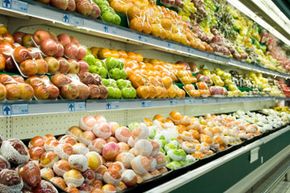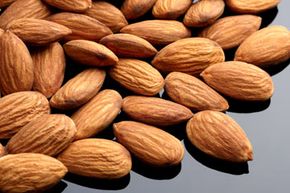It's a money-saving proposition that is hard to pass up: buying groceries and other staples in bulk so that you pay less for those items in the long run. And it's true that you can rack up some serious savings through shopping for bulk items at warehouse club stores, or stocking up when items go on sale at regular retail destinations. Warehouse clubs like Costco maintain profit margins of about 8 to 14 percent, as opposed to the 20 to 40 percent margins of traditional grocery chains [source: Warehouse Club Focus]. But there are some good rules of thumb to keep in mind when bulk shopping, to make sure that you don't end up wasting money, instead of saving it.
- Be mindful of storage concerns. That killer deal you just got on a case of toilet paper may not seem so convenient when you can't find room for it in your closet.
- If you spend money on something you don't normally use, or don't really need, you're not saving money by buying it in bulk. It doesn't make sense to buy a 12-pack of Dijon mustard, even if it's extremely cheap, if you've had the same bottle sitting in your fridge for a year.
- Don't buy a particular brand or variety of a product in bulk if you're not familiar with it. If it turns out that it doesn't stack up to your favorite brand, that's money down the drain.
- Perishable foods are generally bad investments for bulk purchases. Unless you have a huge family, have houseguests coming into town or just have a serious craving for bananas, you may not be able to go through your stock before it goes bad.
- Be certain that you're actually paying less. Comparison shopping at warehouse stores can be difficult, so think about carrying a list of prices from your usual grocery store with you, just to make sure you pay less per unit.
On the next page, we'll list some specific items that might seem like a good investment for bulk purchases, but carry some unexpected drawbacks.
Advertisement



